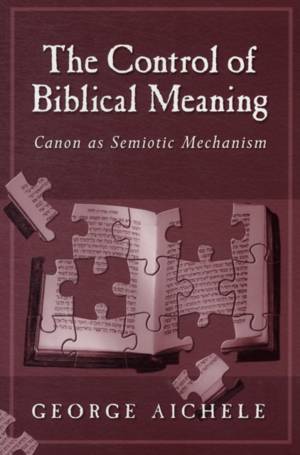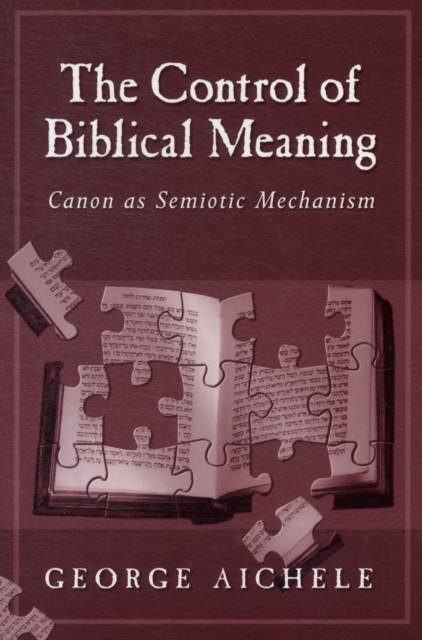
- Afhalen na 1 uur in een winkel met voorraad
- Gratis thuislevering in België vanaf € 30
- Ruim aanbod met 7 miljoen producten
- Afhalen na 1 uur in een winkel met voorraad
- Gratis thuislevering in België vanaf € 30
- Ruim aanbod met 7 miljoen producten
Zoeken
€ 89,95
+ 179 punten
Omschrijving
This provocative book pursues a series of questions associated with canon(s) of the Bible. How does the canon influence the meaning of the texts of which it is composed? Could texts be "liberated" from the canon, and what would this liberation do to them or to the canon? What does the biblical canon signify about its constituent texts? What does canonical status imply about texts that are included in the Bible, as well as texts that are excluded from it? How does a canon-a cultural and ideological product-influence or create ideology and culture?
In The Control of Biblical Meaning, George Aichele draws deeply on the insights of postructuralist literary theory as he pursues these questions. He also engages in close readings of specific biblical and nonbiblical texts to demonstrate ways that canon controls the meanings of its texts. With dazzling skill, Aichele interrogates the form and function of canon as a mechanism that both reveals and conceals texts from its readers.
George Aichele teaches at Adrian College in Adrian, Michigan. He is the author of Sign, Text, Scripture: Semiotics and the Bible and Jesus Framed and is a contributor to The Postmodern Bible.
For: Advanced undergraduates; graduate students; biblical scholars; course text
In The Control of Biblical Meaning, George Aichele draws deeply on the insights of postructuralist literary theory as he pursues these questions. He also engages in close readings of specific biblical and nonbiblical texts to demonstrate ways that canon controls the meanings of its texts. With dazzling skill, Aichele interrogates the form and function of canon as a mechanism that both reveals and conceals texts from its readers.
George Aichele teaches at Adrian College in Adrian, Michigan. He is the author of Sign, Text, Scripture: Semiotics and the Bible and Jesus Framed and is a contributor to The Postmodern Bible.
For: Advanced undergraduates; graduate students; biblical scholars; course text
Specificaties
Betrokkenen
- Auteur(s):
- Uitgeverij:
Inhoud
- Aantal bladzijden:
- 272
- Taal:
- Engels
Eigenschappen
- Productcode (EAN):
- 9781563383335
- Verschijningsdatum:
- 1/02/2001
- Uitvoering:
- Paperback
- Formaat:
- Trade paperback (VS)
- Afmetingen:
- 152 mm x 229 mm
- Gewicht:
- 367 g

Alleen bij Standaard Boekhandel
+ 179 punten op je klantenkaart van Standaard Boekhandel
Beoordelingen
We publiceren alleen reviews die voldoen aan de voorwaarden voor reviews. Bekijk onze voorwaarden voor reviews.








